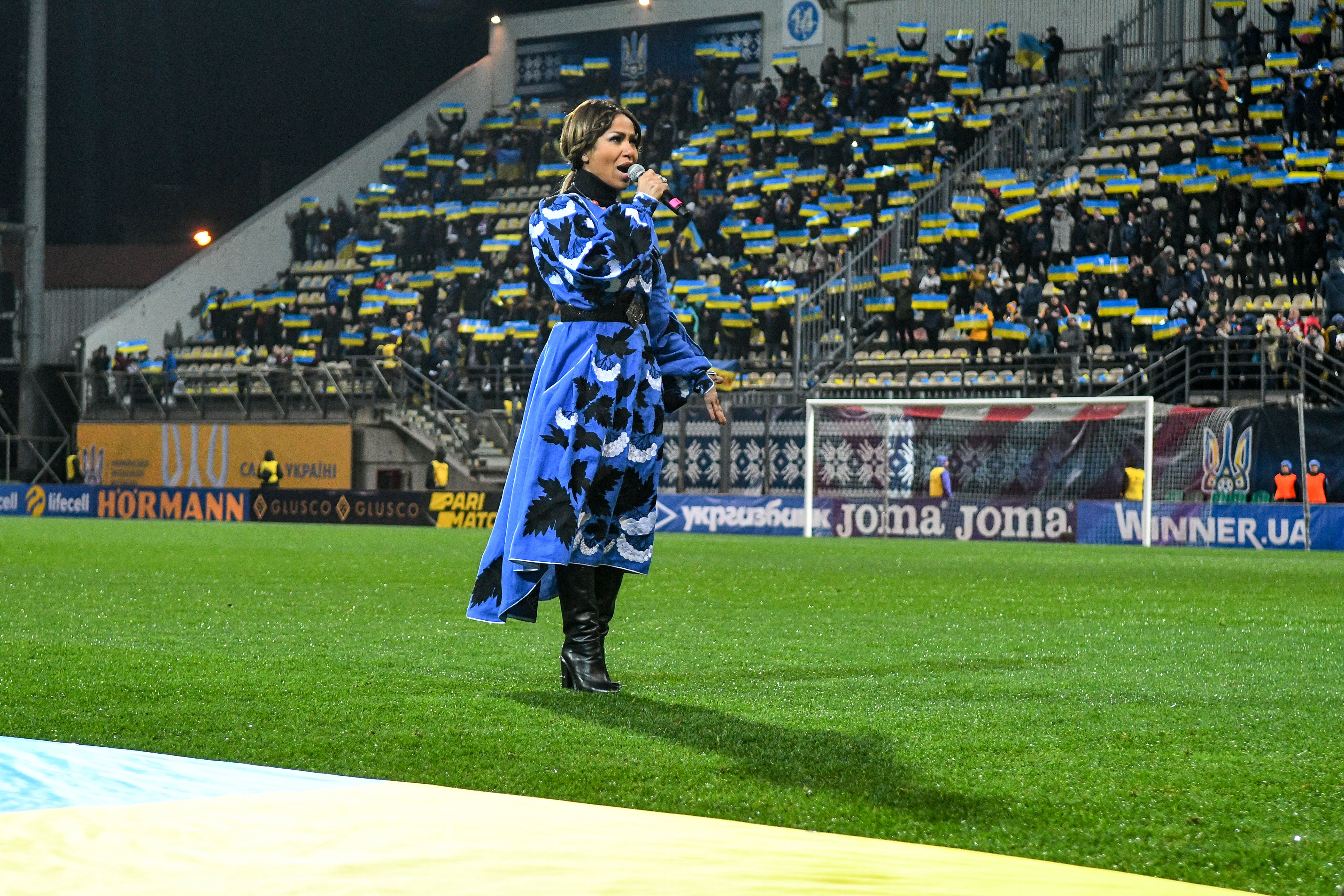An Olympic gold medalist serving as Ukraine's first Black member of parliament is urging fellow countrymen to resist the Russian invasion, highlighting the nation's vulnerable but little-known African Ukrainian population.
The big picture: Zhan Beleniuk has spoken openly about racism he's faced in Ukraine after bringing home the Greco-Roman middleweight gold last year in the Tokyo games. But experts say he and other Black Ukrainians are expressing their loyalty to the country amid fears they could become special targets for Russian occupiers.
Driving the news: On Facebook on the eve of the invasion, Beleniuk called on Ukrainians to keep calm, "believe in our country" and "understand that panic is the main 'weapon' that is currently playing against us!"
- Last week, he posted images of himself on Facebook and Instagram cleaning a Soviet-era pistol, suggesting he was preparing to fight.
Details: A few thousand Black Ukrainians are believed to live in the country's major cities, though precise population numbers aren't available, Kimberly St. Julian-Varnon, a historian and University of Pennsylvania doctoral candidate who studies Black Ukrainians, told Axios.
- Some are biracial second- or third-generation Ukrainians with African fathers and white, Slavic mothers, while others are first-generation arrivals from African nations drawn by easy access to education.
- Other well-known Black Ukrainians include singer Gaitana and actor Berta Vázquez.

- Kyiv-born Beleniuk is the son of a Ukrainian mother and a Rwandan father, a Hutu pilot who died in that country's civil war.
- Beleniuk won Olympic silver in 2016 and served in the Ukrainian Army. In 2019 he won a historic election to parliament as a member of President Volodymyr Zelensky's Servant of the People party.
- “I consider myself 100% Ukrainian, and the people who have always supported and believed in me are all in Ukraine," Beleniuk said while competing in the Olympics. "I don’t want to betray them. Sooner or later, there will be positive changes."
Between the lines: Many Black Ukrainians have ties to the Cold War-era recruitment of college students from Rwanda, Nigeria, Mozambique, and the Republic of the Congo.
- Terrell Jermaine Starr, a senior fellow at the Atlantic Council’s Eurasia Center, has written about how Black students and technical workers came to Ukraine in large numbers around the 1950s.
Don't forget: Black Russians have described harsh racism in Russia, from openly being denied access to cafés to signs that tell Black residents don't even bother to try to rent an apartment.
- Black Ukrainians, in the current conflict, could be singled out by Russia as suspicious or enemies just based on their skin color, St. Julian-Varnon said.
Be smart: Many Black Ukrainians have no ties to other countries and few options if forced to leave.
Further reading:







